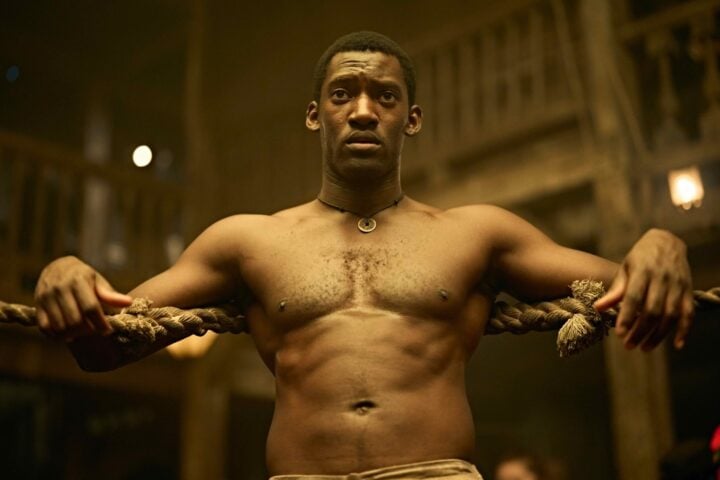You can rely on standard-issue Hollywood biopics to sand down the more complex edges of their central figures in favor of presenting clear, streamlined narrative and character arcs. Sports biopics tend to go one step further, rendering their protagonists as implacable forces of self-determination who allow nothing to get in the way of their ultimate triumph.
Some sports biopics avoid becoming simplistic odes to the value of hard work by either exploring the psychological turmoil that can fuel such tenacity, as in Raging Bull, or the physical and emotional costs of ceaselessly pushing oneself to succeed, as in The Iron Claw. But most are like The Young Woman and the Sea, trivializing the adversity that their subject faced by surrounding them with one-note foes that are easily defeated (and easier to root against) and barriers that are shattered as easily as swinging a sledgehammer at a thin glass ceiling.
Telling the true story of Trudy Ederle (Daisy Ridley), the first woman to swim across the English Channel, Joachim Rønning’s film is certainly well aware of the opposition Trudy was met with along the way to making sports history. She faced mockery and resistance both from her traditionalist father (Kim Bodnia), who agreed with the popular early-20th-century notion that women shouldn’t swim, and from her fellow swimmers, male and female alike.
The leader of the American Olympic Committee and the Amateur Athletic Union, James Sullivan (Glenn Fleshler), doubted Trudy every step of the way, from her appearance at the 1924 Summer Olympics in Paris, where she won a gold medal as a member of the first-place U.S. team in the 4×100 meter freestyle relay, to her attempts to cross the English Channel, which he begrudgingly sponsored. Even her second coach, Jabez Wolffe (Christopher Eccleston), repeatedly tried to undermine the efforts she put into her training.
Despite all the rules, regulations, and men standing in Trudy’s way, The Young Woman and the Sea leaves no room for doubt about what the young woman will accomplish and thus creates virtually no dramatic tension in her inevitable rise to the top ranks of women’s swimming. Ridley is charming as Trudy, but the incessantly cheery optimism the actress imbues the character with makes her more superwoman than human—a fact that’s only magnified by the ease with which Trudy proves everyone wrong every step of the way.
The Young Woman and the Sea’s best sequences depict Trudy’s two attempts to finally cross the English Channel, both of which happen late in the narrative, and both of which create genuine stakes since Trudy is finally presented as being somewhat vulnerable. Ultimately, though, the film isn’t all that interested in that vulnerability, only in celebrating her strength and force of will. As such, it delivers countless crowd-pleasing moments, aided by the near-constant use of Amelia Warner’s syrupy, relentlessly rousing score, in the process failing to tell the audience anything about Trudy Ederle beyond her being a fiercely determined swimmer.
Since 2001, we've brought you uncompromising, candid takes on the world of film, music, television, video games, theater, and more. Independently owned and operated publications like Slant have been hit hard in recent years, but we’re committed to keeping our content free and accessible—meaning no paywalls or fees.
If you like what we do, please consider subscribing to our Patreon or making a donation.





